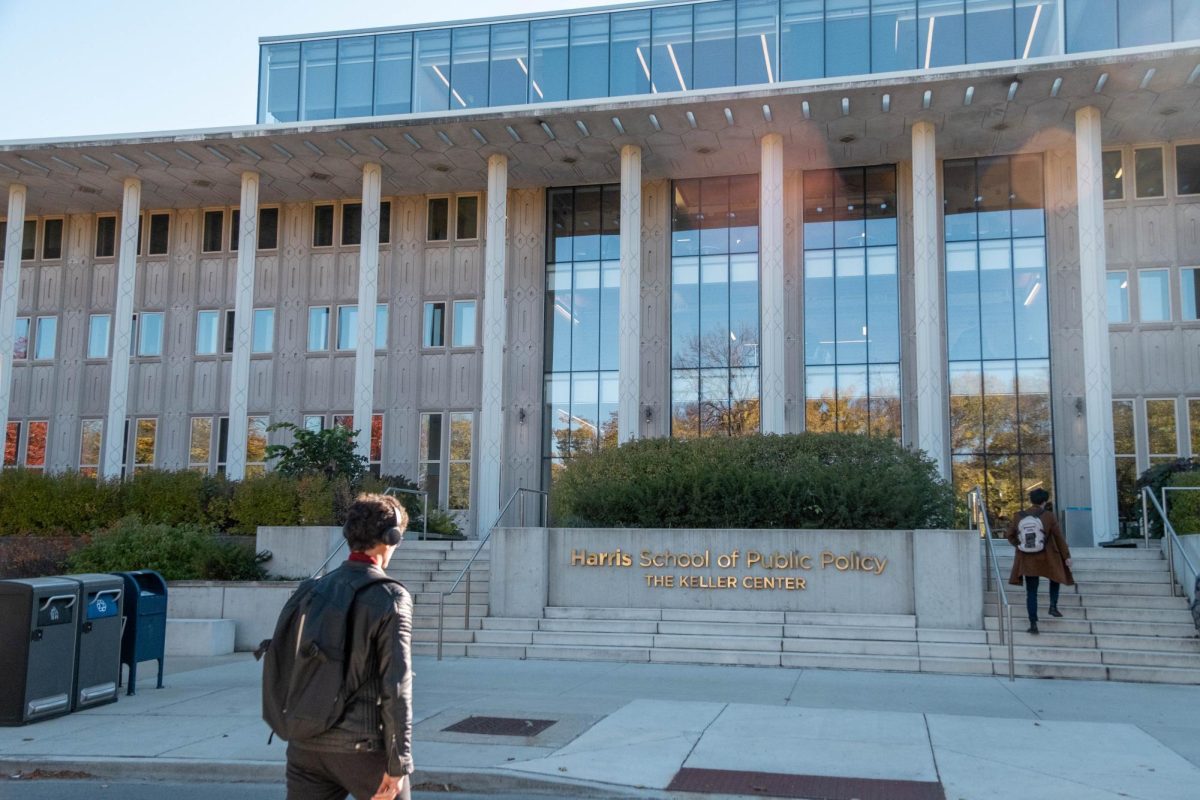Wendy Doniger spoke yesterday to an audience of students, faculty, and other University community members about everything from communism to the Kamasutra. Doniger, the Mircea Eliade Distinguished Service Professor in the Divinity School and the Committee on Social Thought, gave the latest installment of the “What Matters to Me and Why” series sponsored by Rockefeller Chapel.
Doniger began by talking about how much poetry has meant to her in her quest to understand life. “Whenever I need to be reminded about what matters in life for me, I think about the poem ‘The dying wish of an old philosopher’ by William Savage Lander,” Doniger said. “While the poem is only four lines long and is really second-rate, the metaphysics of it are in my opinion much better than what you find in first-rate poetry.”
Doniger also revealed much about her personal political beliefs. “I was born a red-diaper baby, and I had a staunchly communist mother,” Doniger said. “When I was younger, I was the president of a communist youth group, and I even went to live in Russia for a year.”
While in the Soviet Union, Doniger stated that she began to become disillusioned with communism, but when she returned to the U.S. she continued to vote for Communist Party candidates.
Her early experience with politics and communism, however, left Doniger with a distaste for global action. Instead, Doniger decided to focus on how she could achieve positive change on a more local level. “My heart is in local action, but I am basically ruined on politics, especially academic politics,” Doniger said. “I try instead to improve the life of anyone I interact with personally, and I strive to teach everyone a little something. When people come to me with problems, I try to help them and make a difference.”
One of Doniger’s greatest personal pleasures is nature. “I care greatly for natural beauty – I spend my summers on Cape Cod, but I also appreciate the beauty of nature that can be found right here in Chicago,” Doniger said. “Every morning I go for a walk with my dog to Wooded Isles, so that I can admire the autumn leaves or the snow—this is very important for me, to be able to find nature in the city.”
Doniger also looks to literature and music for pleasure and nurturing. “When things get bad, I translate Sanskrit, turn on some good music, and I begin to feel re-centered in life,” Doniger said.
For Doniger, the essence of life is the ability to take risks, and to live every minute. Her outlook on life was shaped by a near-fatal car accident in 1964 in which she suffered many injuries. The brush with death taught her to stop fearing it.
“I try to get things done at the end of the day,” Doniger said. “I try to mend wrongs as quickly as possible, and I try very hard not to have any unfinished business.” Doniger’s chief areas of academic expertise are Hinduism and mythology. Her recent translation of the Kamasutra was the first since the 19th century edition by Sir Richard Burton. It deals much more literally and frankly with the true nature of the text than Burton’s edition.
According to Doniger, her interest in India and religion grew out of a love of ancient languages, as well as a decision she made to stop dancing. “I had to make a decision between dancing and Sanskrit study at Radcliffe [College],” Doniger said. “I knew that I would never be a great dancer, that I would only be a very good dancer, and so at the age of 20 I gave up dancing.”
According to Doniger, she became a teacher because she felt it was in her bones. “I can’t go through life without helping students – I especially love teaching languages such as second-year Sanskrit and texts,” Doniger said. “I take as a personal motto the expression ‘Cultivate your garden,’ which for me means that it is important to tend with immediate care that which you can.”
The environment of the University, in particular, has been a great joy for Doniger. “I have taught at many other good schools, and I am not sure how good I would be as a teacher elsewhere – here the students want to be in your class,” Doniger said. “The research nature of this University also means that I can teach classes that I want to teach, and so the result here is the best of all possible worlds for both students and teachers.”
For Doniger, the greatest reward about being a teacher is it helps her feel younger. “Normally, I would be feeling my full age – I was born in 1940 – but my students here constantly make me aware of younger and fresher viewpoints about life and about the texts read in my courses,” Doniger said. “It is good to be near people who still have idealism.”








